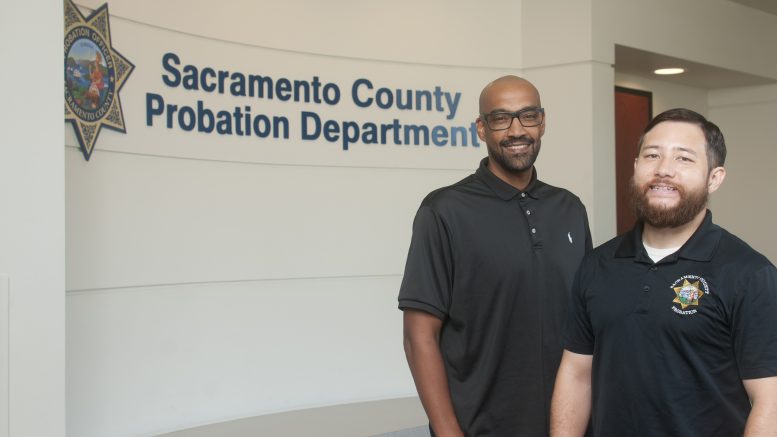A fresh start in life. That is what probation affords individuals who are justice involved.
When a judge hands down a sentence of probation, it enables a defendant to remain in the community, under strict conditions, instead of jail or prison. But staying out of prison can be a battle for those facing barriers such as unemployment or a lack of education.
Lynsey Fukushima, a Sacramento County probation officer, knows the struggle justice-involved people face.
“It’s just that time in that person’s life when they’re tired of going in and out of the system, and they’re trying to find a better way to move forward with their life,” Fukushima says.
To help, the Sacramento County Probation Department and its community partners are working together to make it easier for adult and juvenile clients to turn probation into an opportunity to obtain an education, learn a trade and transform their lives.
One of the Department’s partners is Leaders in Community Alternatives Inc., a community-based organization that provides educational and employment services for justice-involved individuals.
“If a client comes in and they want to get their GED, we offer GED here on-site through the Elk Grove Unified School District. They have an on-site teacher here to help our clients navigate through that process and help them to obtain their GED,” says Lamar Fort who is LCA’s supervising lead case manager at the Sacramento County Probation Department Adult Day Reporting Center.
Clients can also learn a trade through another community partner called Northern California Construction and Training. NCCT is a nonprofit organization that offers training in construction-related trades, such as HVAC, plumbing, carpentry, electrical, welding and forklift operation.
“He came in a little over two weeks ago to share with me that he had just picked up his commercial driver’s license to drive trucks and was excited. And he is still clean, and now he’s working. That’s what I like to hear. That’s why I like doing what I do.”
Lamar Fort, LCA’s supervising lead case manager
Sacramento County Probation Department Adult Day Reporting Center
Fukushima says he regularly assists clients who want to enroll in NCCT’s construction training program, helping them gather and complete all necessary documentation.
“I get a lot of referrals; however to qualify, applicants must test free of drugs,” Fukushima says.“I would say pretty much every client that has completed the program will eventually get a job.”
The NCCT construction classes are Monday through Friday for four hours a day.
“NCCT teaches people from the ground up to get them ready to work with one of the local unions. Then, once they are ready, and there is a job available, they’ll actually link them up,” Fukushima says. “They learn everything from CPR to how to take measurements before going out in the community and doing projects.”
Without the education, employment and other social services offered through the Probation Department and its partners, Fort says many clients would enter a cycle of recidivism and stay in the criminal justice system. “They would just end up going back to county jail or state prison. We’re trying to prevent that.”
And in fact, many clients successfully complete the programs and find jobs.
“I have clients who come back to see me and thank me for coming into their lives with no judgment against them and turning their lives around and just relating to them,” says Fort.
Fort recalls one client who at first resisted assistance due to past trauma.
“In order to get him to come in here, I had to talk about things that he was interested in, whether it was golfing or airplanes or whatever the case may be—I had to talk about those things first,” he says.
After he built a rapport, Fort says the client started participating in programming and producing clean drug tests. Then he expressed an interest in enrolling in a commercial truck driving course.
“He came in a little over two weeks ago to share with me that he had just picked up his commercial driver’s license to drive trucks and was excited,” Fort says. “And he is still clean, and now he’s working. That’s what I like to hear. That’s why I like doing what I do. I like to help people.”


























